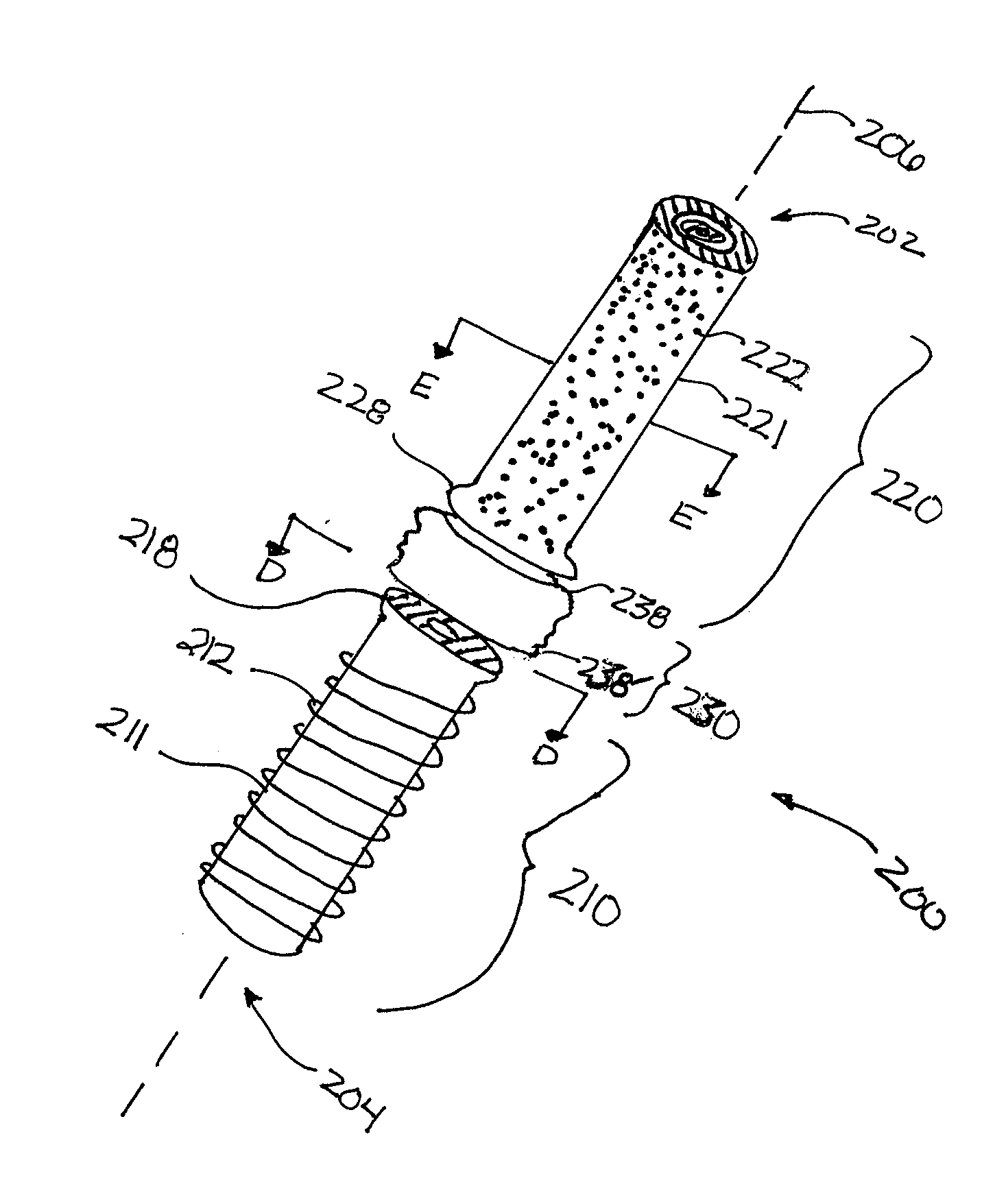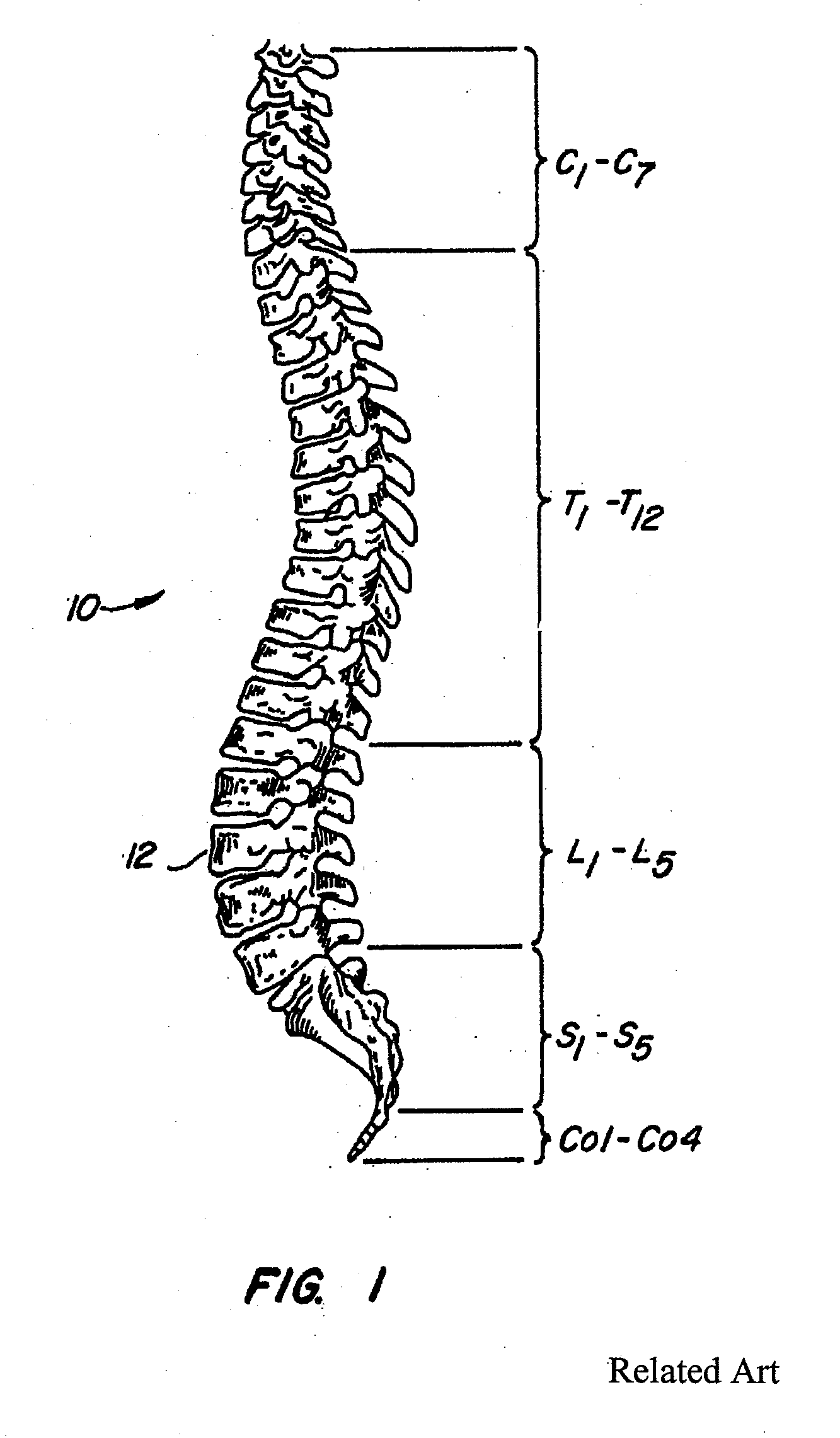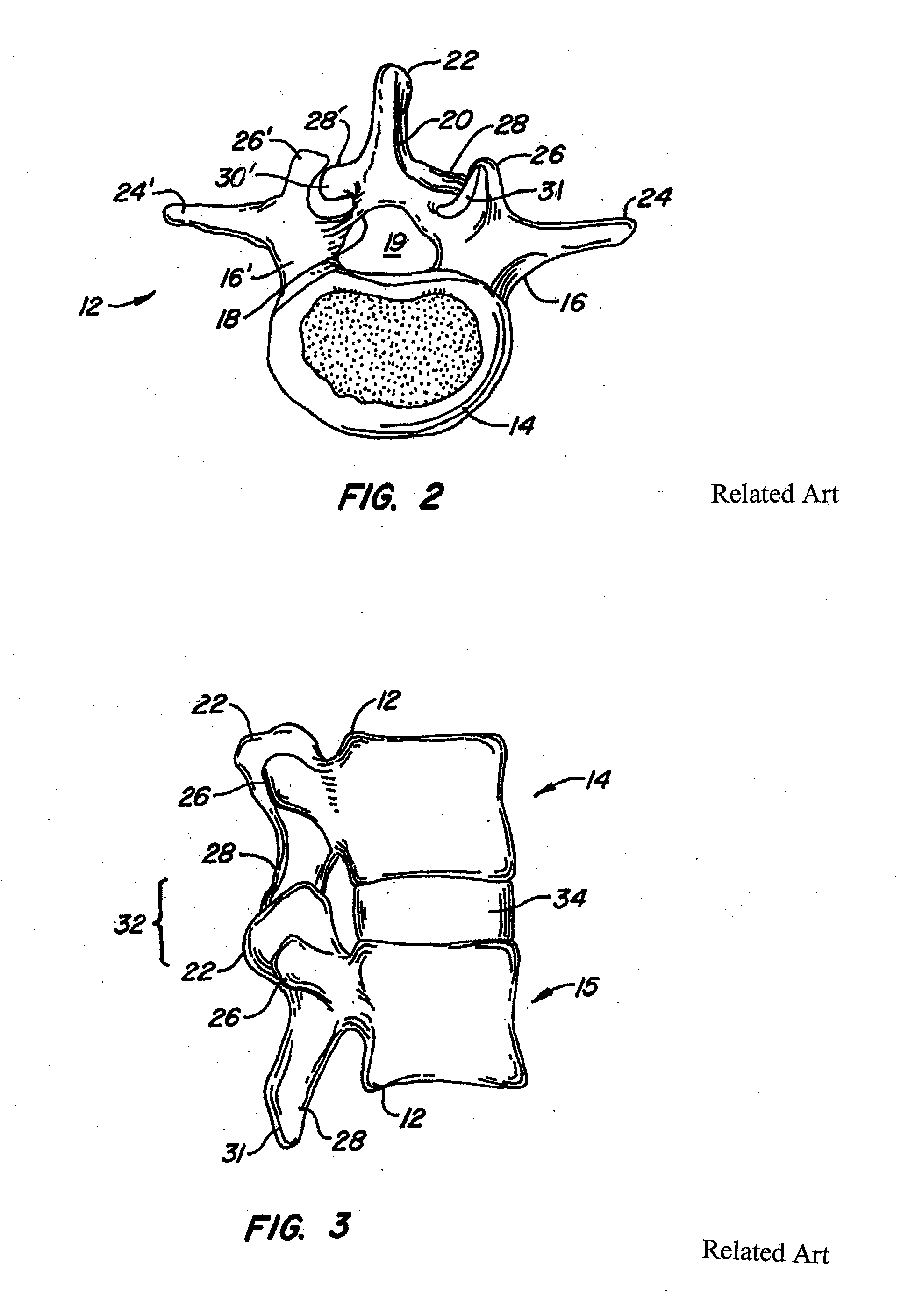Polymeric joint complex and methods of use
a polymer and joint technology, applied in the field of polymer facet joint complex, can solve the problems of severe limits to the functional ability and quality of life of people, loss of proper alignment or loss of proper articulation of the vertebrae, so as to increase or decrease the constraint of the joint, replace or augment the joint complex, and strengthen the effect of replacing or augmenting the joint complex
- Summary
- Abstract
- Description
- Claims
- Application Information
AI Technical Summary
Benefits of technology
Problems solved by technology
Method used
Image
Examples
Embodiment Construction
[0046]The invention relates to implantable devices, including implantable prosthesis suitable for implantation within the body to restore, reinforce, replace and / or augment connective tissue such as bone, and systems and methods for treating spinal pathologies. The invention relates generally to implantable devices and apparatuses or mechanisms that are suitable for implantation within a human body to restore, augment, and / or replace soft tissue and connective tissue, including bone and cartilage, and systems for treating spinal pathologies. In various embodiments, the implantable devices can include devices designed to replace missing, removed or resected body parts or structure. The implantable devices, apparatus or mechanisms are configured such that the devices can be formed from parts, elements or components which alone, or in combination, comprise the device. Thus, for example, the implantable devices can be configured such that one or more elements or components are formed in...
PUM
| Property | Measurement | Unit |
|---|---|---|
| cylindrical shape | aaaaa | aaaaa |
| shape | aaaaa | aaaaa |
| biocompatible | aaaaa | aaaaa |
Abstract
Description
Claims
Application Information
 Login to View More
Login to View More - R&D
- Intellectual Property
- Life Sciences
- Materials
- Tech Scout
- Unparalleled Data Quality
- Higher Quality Content
- 60% Fewer Hallucinations
Browse by: Latest US Patents, China's latest patents, Technical Efficacy Thesaurus, Application Domain, Technology Topic, Popular Technical Reports.
© 2025 PatSnap. All rights reserved.Legal|Privacy policy|Modern Slavery Act Transparency Statement|Sitemap|About US| Contact US: help@patsnap.com



